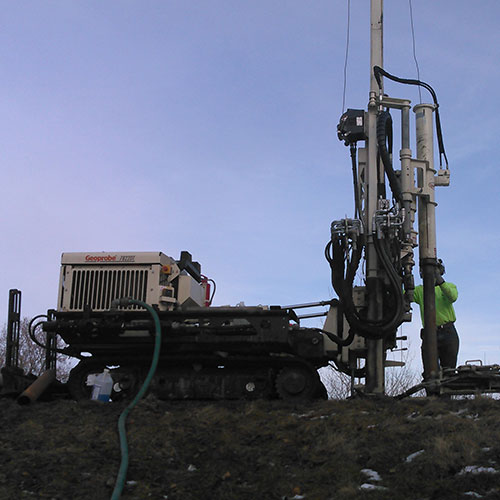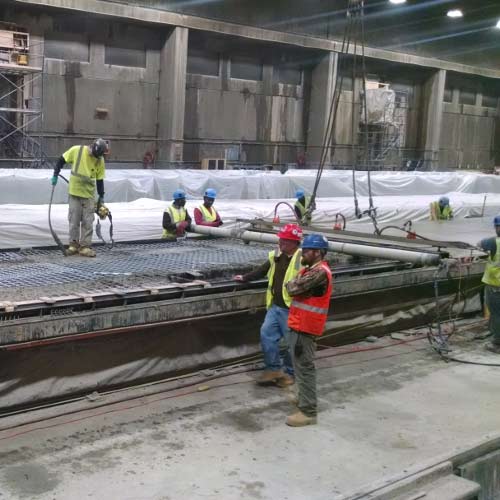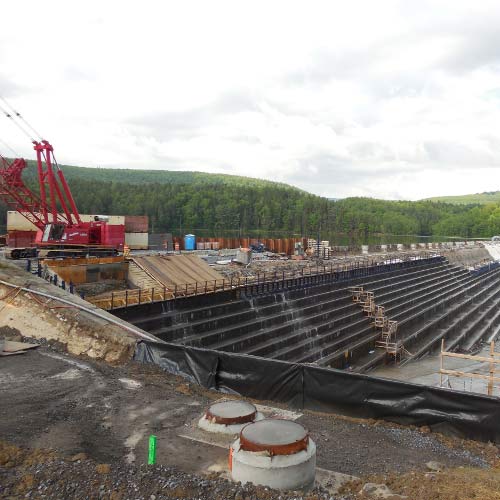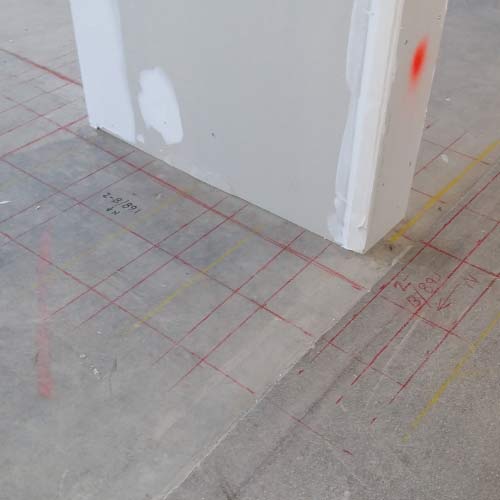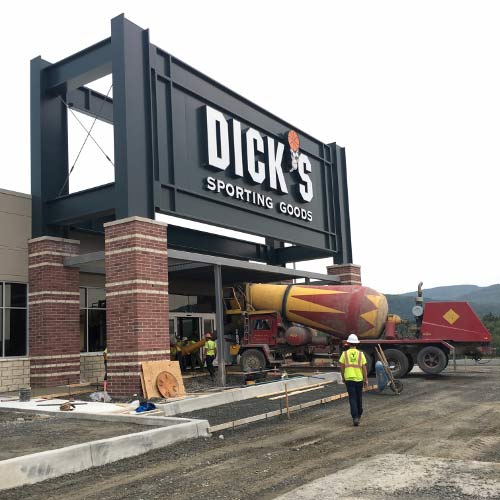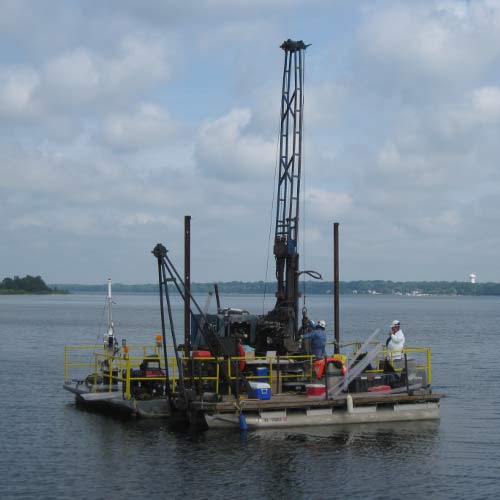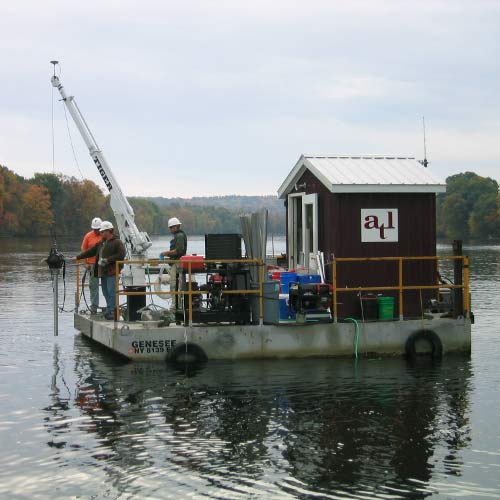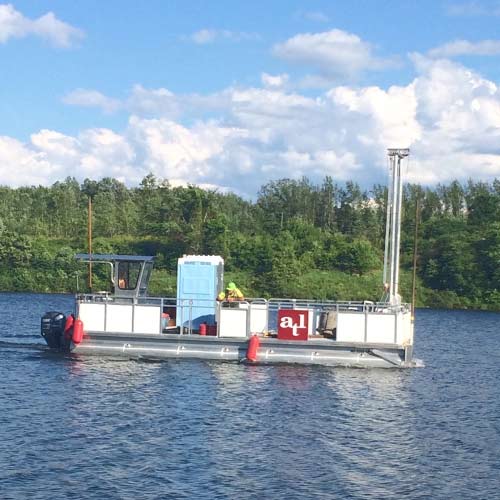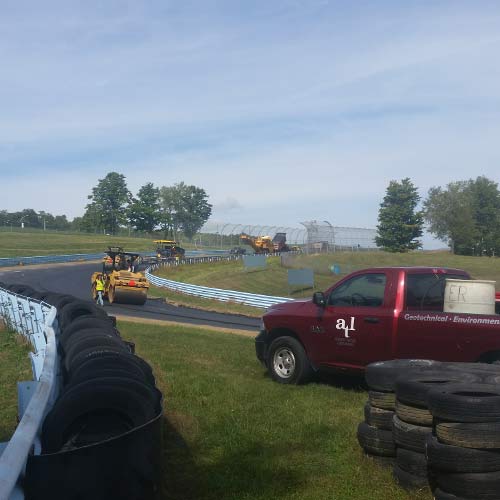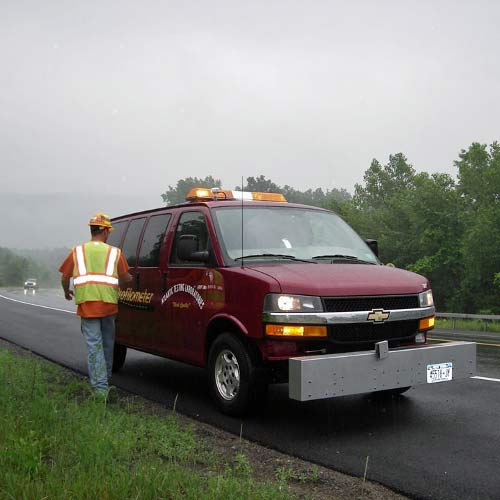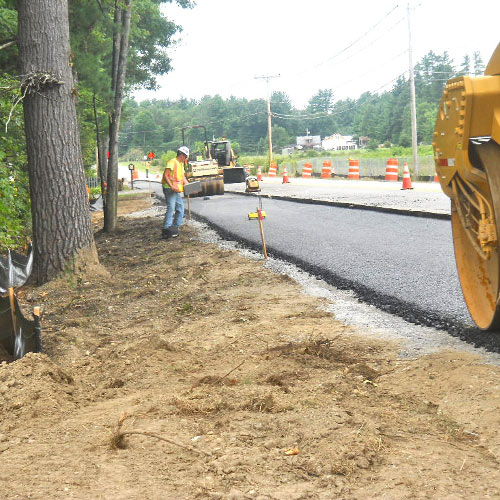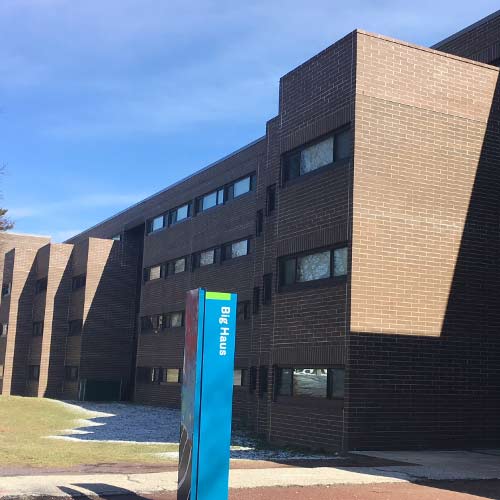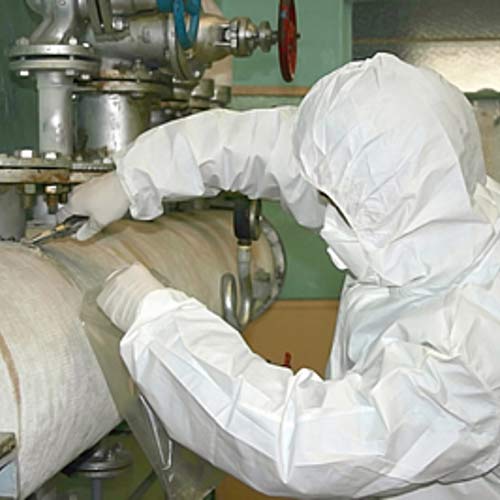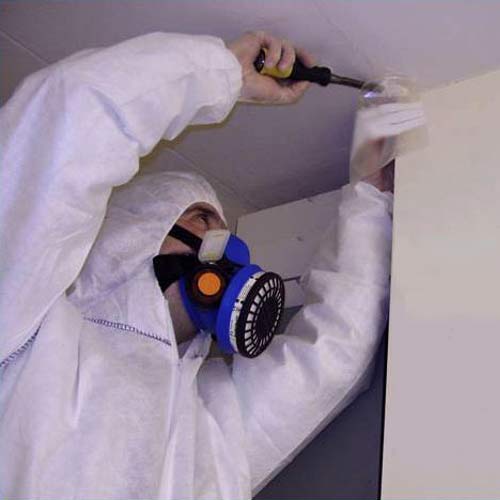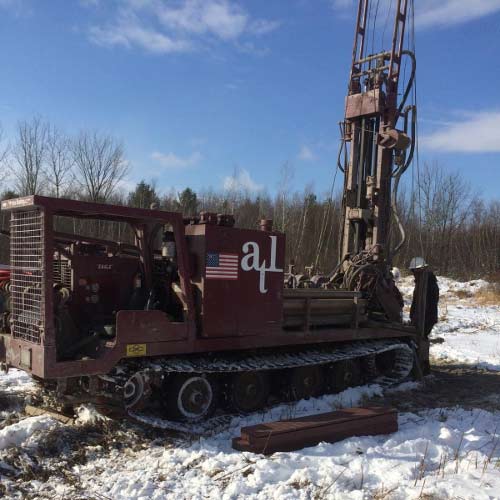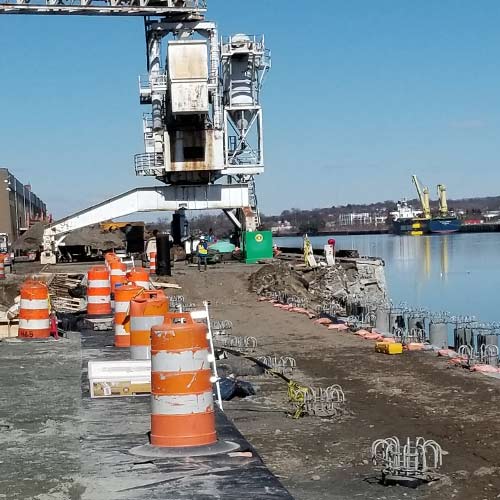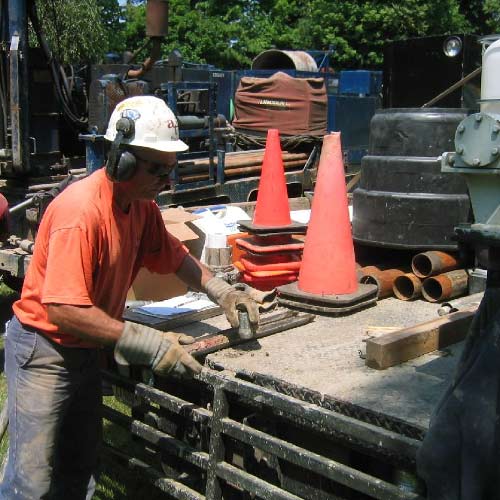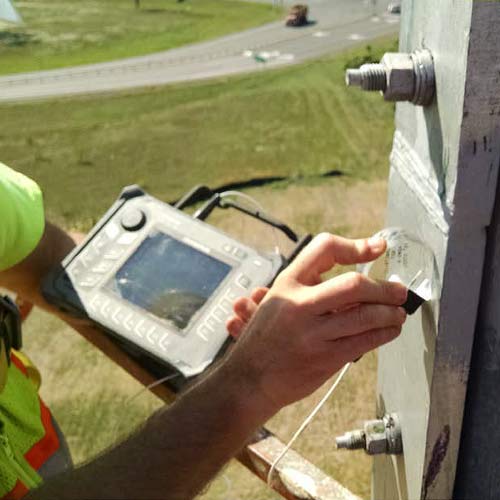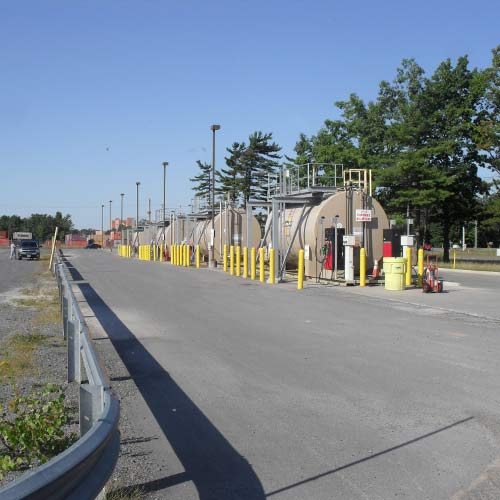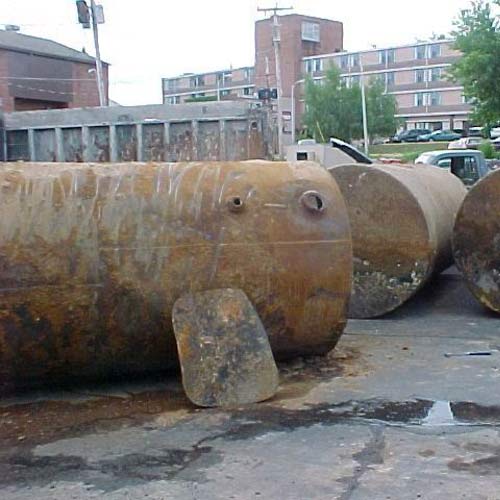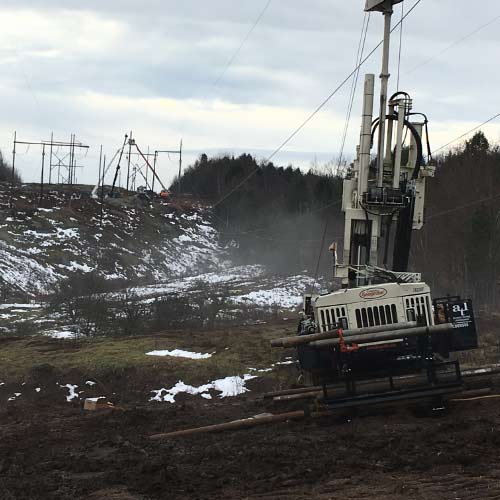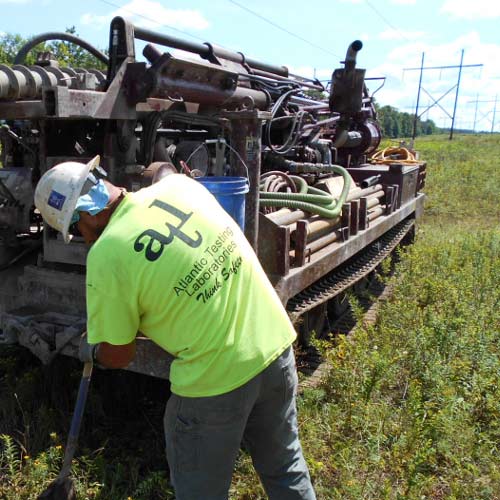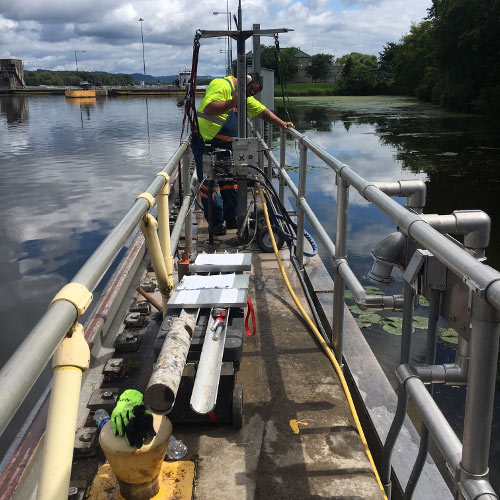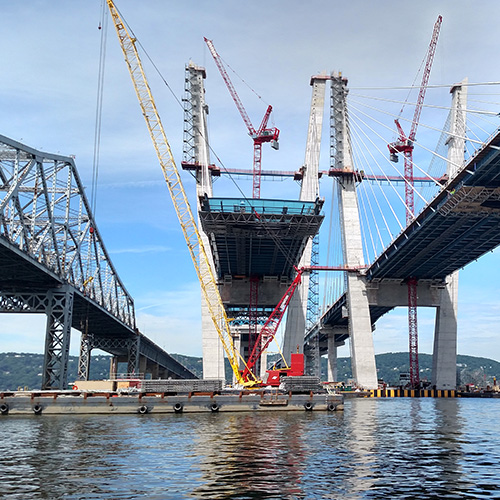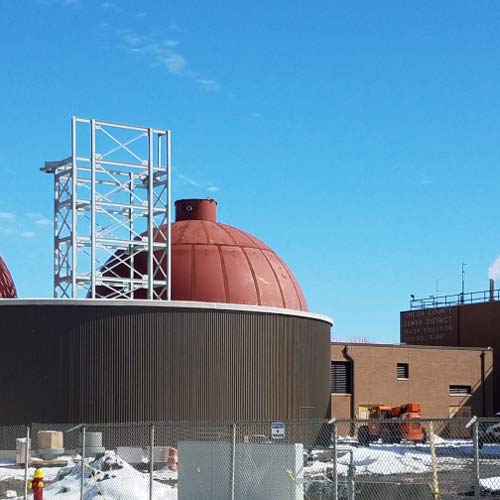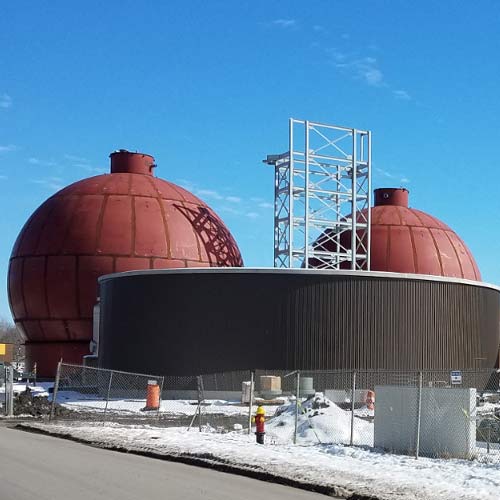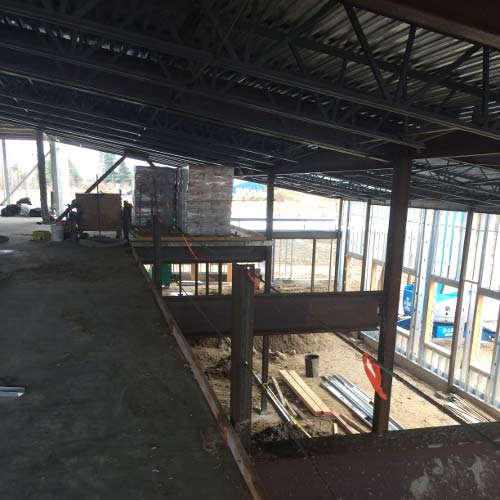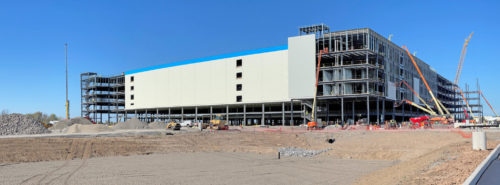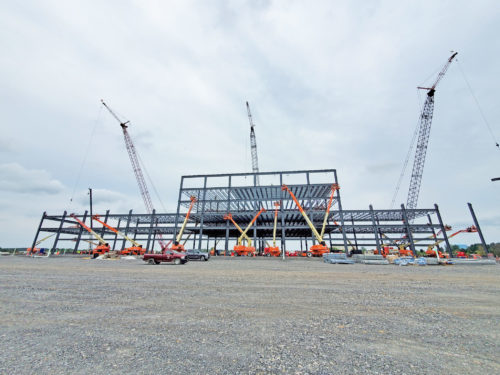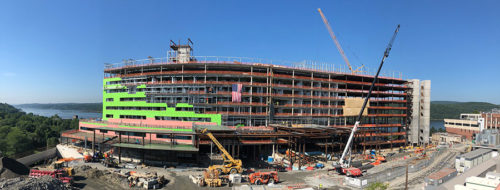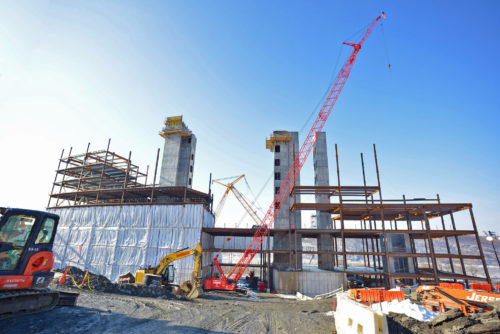Steve Moore, PE, recently attended a 3-day seminar entitled “Concrete Science and Advance Methods for Evaluation of Concrete”. This seminar provided classroom learning and field demonstrations of various concrete evaluation methods. Strength evaluation methods included concrete core tests (ASTM C 39), Rebound Hammer (ASTM C 805), Pullout Tests (ASTM 900), Pull-Off/Adhesion Test (ASTM C 1583), Maturity Method (ASTM C 1074), and multiple case studies of in-place strength evaluation methods. Concrete flaw detection methods included Ultrasonic Pulse Velocity (ASTM C 597), Impact Echo (ASTM C 1383), and Impulse-Response/Sonic Echo (ASTM D 5882 and ASTM C 1740). Concrete durability and corrosion evaluation methods included Chloride Ion Diffusion/Permeability/Migration (ASTM C 1556, ASTM C 1202, NT Build 492), Half-Cell Corrosion Potential (ASTM C 876), and Bulk Electrical Conductivity (ASTM C 1760). Other topics of discussion included Ground Penetrating Radar (GPR), reinforcement location, autogenous concrete shrinkage, thermal control of mass concrete and concrete rheology.
ATL has been providing concrete evaluation services for over 49 years. For information or a quote on any of the methods listed above or services listed below, go to: info@AtlanticTesting.com.
Evaluation of In-Place Concrete Strength
- Rebound Hammer
- Windsor Probe
- Ultrasonic Pulse Velocity
Concrete Forensic Support Services
- Coring
- Field Investigations
- Laboratory Testing Services
Ground Penetrating Radar
Vibration Monitoring
Mix Design Verification
Building Condition Surveys



